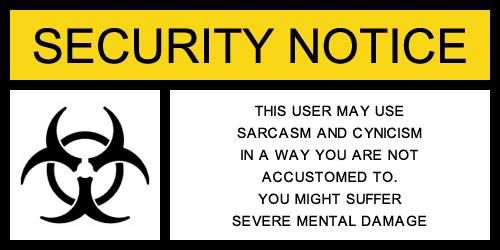Post by b_Pooly on Feb 4, 2009 10:42:09 GMT -5
By Martha Brockenbrough
Every so often a poor, misunderstood word in our language gets a junior-high-school hazing. The Society for the Promotion of Good Grammar (SPOGG) hates that, and proclaims it's time to take the KICK ME sign off of got.
Let's invite got (and its milk carton) back to the lunch table. We need to release all that pent-up irritation at the "got milk?" campaign to fully appreciate the wonders of the word, which has gotten us through language mazes for more than 800 years.
Its uninflected form is get, which means "to obtain or procure" -- largely the same meaning it had when it emerged in 1200. For nearly as long, it's also meant "to receive." Much more recently, it's come to mean "to understand." (We can thank Mark Twain for this sense of it.) In all, it has as many as 25 meanings, ranging from "obtain" to "become" to "scram." This sort of versatility gets SPOGG excited.
Never Stop Learning
• Considering grad school?
• Find a tutor for your child
• Offer: Train for a new career
Let's start with the first sense of the word, though.
There is a misperception floating about that get is merely the uneducated cousin to obtain and procure. This isn't so. They all mean the same thing -- get just happens to be less formal.
So that's the first thing to remember. Informal is not the same as incorrect. Just as there are some places you aren't allowed to wear shorts and T-shirts, there are some places you might want to use a fancier word. You can still keep the shorts in your closet and get in your vocabulary. Got it?
So what about the "got milk?" campaign?
We can probably give the ubiquitous "got milk?" ad campaign a pass because the subject and verb are understood (have + you).
This doesn't mean got can always stand alone, though. It's fine to say, "I got an A on my English paper." What isn't OK is saying, "I got cooties on my head."
In the first sentence, you're talking about a grade you received. In the second, you're talking about parasites that you have in your possession.
What's missing in the second example is the word have. "I have got cooties on my head," and "I've got cooties on my head" are equally correct. You could also just say, "I have cooties on my head."
Thus, the second thing to remember: If you're using the perfect tense -- you do this when you're expressing an action that's been completed and the results of that action are ongoing -- then you've got to use have.
But isn't got redundant?
While it's true that have got is often flabby, the got is sometimes a good addition to the mix -- even if it's redundant. My evidence of that is subjective, but then, assessing style in language is largely that.
I'll illustrate this with an example from my former life as a cross-country runner. A group of us were running through the woods one day when someone stepped on a yellow-jacket nest. Angry bees streamed out, and the boy in front of me yelled, "I've got to get out of here!" The hard "t" ending on got really captured the urgency we were all feeling.
Have just doesn’t have the same, well, sting.
Have got vs. have gotten
When I was in fifth grade, I had to write a sentence with a grammar error in it. I asked my dad for help, and he said, "Use gotten."
I did, and was flummoxed when my teacher said my sentence was wrong because it didn't have an error. (This is why kids should never have their parents do their homework. Parents are idiots. I should know; I am one.)
There are a couple of interesting ways to look at got and gotten.
One is as a vestige of American rebellion. British English is much more likely to use have got than American English, which prefers have gotten. (So does it make my dad look any better to say our ancestors were the illegitimate children of lesser British nobles, which is why he favors the British style? Hmm. Maybe not.)
Want More Martha?
Read more columns by Martha Brockenbrough. Where a British writer might say, "The year has got off to a great start," an American one is more likely to say, "The year has gotten off to a great start."
But it's not just the Atlantic separating the senses of these two words. There are actually slight differences in meaning.
If you say, "I have got a wig," it means you have one in your possession. But "I have gotten a wig" means you've gone out and fetched one. Meanwhile, "I have got to go to the dentist" means you must do it. "I've gotten to go to the dentist" means you went and consider it a privilege.
Got it? I knew you would. Now we can all get on with our regularly scheduled activities.
a free lesson in grammar.


